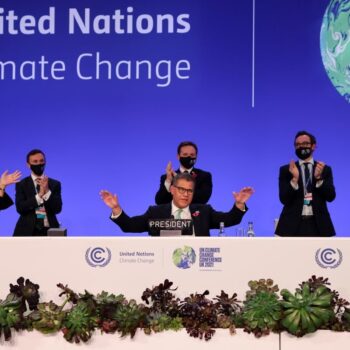As both a global technology leader and an island that is highly vulnerable to climate impacts, Japan had an opportunity in Paris to raise the overall level of global ambition. Japan has a history of climate leadership, playing an integral role as host of the world’s first international climate change agreement in Kyoto in 1997. And critically, Paris delivered many of Japan’s key negotiating asks, including action from all parties and a strong transparency and rules mechanism.
Yet Japan was virtually absent as a diplomatic force in the negotiations and it has not increased its emission reduction target of 26% below 2013 levels by 2030. This is inadequate to deliver the well below 2 degrees Celsius benchmark, is less ambitious than the pledges from either the US or EU and is not consistent with Japan’s long term goal of an 80% reduction in emissions by 2050.
This new briefing note from E3G argues that Japan is wasting its considerable advantages in clean technology and its failure to prioritize climate change leaves it in danger of becoming isolated:
- Japan is losing the clean energy race to its largest regional competitor, China. In 2015 total renewable energy investment in China rose 17% to US$102bn – more than double that of Japan where investment has remained flat over the past two years.
- Japan is betting its economy and energy security on risky coal investments. Japan is the only member of the G7 that is planning a significant amount of new coal infrastructure. And it is not just the developed world that is abandoning coal. In China, India, Indonesia and Vietnam, for example, shelved or cancelled coal power proposals outnumbered completed fossil plants 1.5 to one over the past five years.
The G7 is a rare opportunity for Japan to set a stronger global climate agenda. Japan can use its G7 Presidency to signal its reemergence as a leader on climate change by reasserting the developments and outcomes from the G7 and Paris in 2015 and outlining proactive collaboration on key elements of the international agenda. Japan should further demonstrate its resolve by becoming one of the first countries to ratify the Paris Agreement, restricting international financing of coal plants, establishing a domestic carbon pricing system, and setting new targets on energy efficiency.
Read the report here – Against the odds: As China and the U.S. move low carbon, Japan bets on business as usual [PDF 701Kb]



